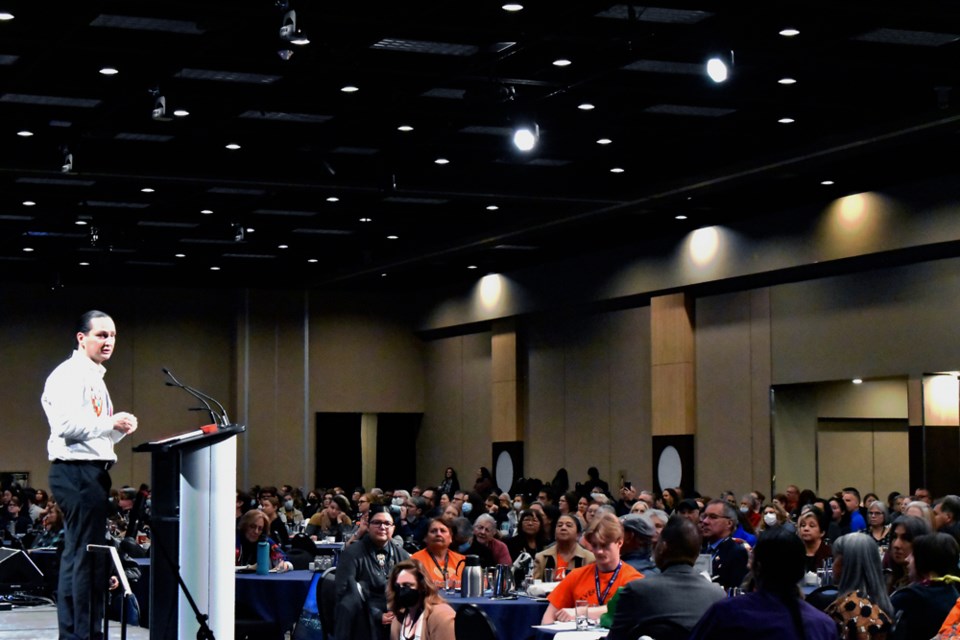SASKATOON — Chief Cadmus Delorme is hopeful that members of their community and other Indigenous people will no longer work twice as hard to be treated equally.
Delorme, the head of the Cowessess First Nation east of Regina, spoke in the final Wîcihitowin Indigenous Engagement Conference Nov. 28, at TCU Place, where he told the story of his six-year-old daughter Callie seeing an airplane for the first time.
“Last summer, Callie and I were playing outside our house and she saw an airplane high in the sky. She asked me, ‘dad, what’s that?’ Of course, when you [answer] a five-year-old’s ‘what’s dad?’ [expect] five of six [more] times,” said Delorme.
“I said, ‘honey, it is like a bus, but a pilot is driving it, and someone’s handing out peanuts down the aisle,” he added as the crowd erupted in laughter.
His language took a serious note when his daughter asked him if she could be a pilot someday, to which he answered: “My girl, you want to be a pilot, your mom and I will make sure you can be one.”
Delorme added that he and his wife accept the challenge of helping their daughter break the glass ceiling and achieve her dream of becoming a pilot someday, as he likened the chances of Indigenous people in everyday life to a canoe.
“This is the reality in 2022. My wife and I accept the challenge of trying twice as hard to raise an Indigenous girl to be a pilot. We accept that challenge because the toughest person in this province and country is an Indigenous female,” said Delorme.
“There are so many glass ceilings in your workplaces. So many glass ceilings that our Indigenous canoe, and we have to start having those uncomfortable conversations that they are happening, and this is where we are. I hope that one day, when I’m already a mushum, Callie doesn’t work twice as hard to achieve.”
The conference is the eighth and final after the Truth and Reconciliation Commission report came out in 2015 that chronicled the experiences and other stories of residential school survivors across the country.
Delorme said it was an honour to be among the speakers during the two-day Wîcihitowin conference that also featured former TRC commissioners Murray Sinclair (via video), Dr. Wilton Littlechild and Dr. Marie Wilson.
The conference aims to engage and educate everyone — Indigenous and non-Indigenous — on the history of residential schools and the intergenerational impacts it has on Indigenous communities in the country.
“The Wîcihitowin conference is about bringing together what we inherited and have today and the actions we play moving forward. I’m honoured that I got to be a part of this conference. I got little kids that are proud Indigenous people. I’m a proud Indigenous person, a Saskatchewanian and Canadian,” said Delorme.
“I see what reconciliation means to all of us, and sometimes I see the inactions that some of us are taking. But there are amazing actions that many others are taking. My interpretation is to motivate us all that we inherited this, but we have a responsibility to do something about it.”




